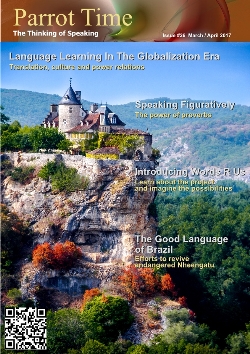Language Creation and Deities

|
While I am sure that many of you have your own "language gods" in the form of various polyglots or hyperpolyglots you idolize, I want to look at the religious and mythical gods of language, as well as some of the ideas of where languages come from. In religions, there are a number of deities who are associated with certain specific jobs or items. The Hindu god of vegetation is Soma. The Greek god of wine and fertility is Dionysus. For the Egyptians, the goddess of protection and cats is Bast. Faunus is the Roman god of flocks and shepherds. For the Centauri, there is Morgoth, god of the underworld and protector of front doors. 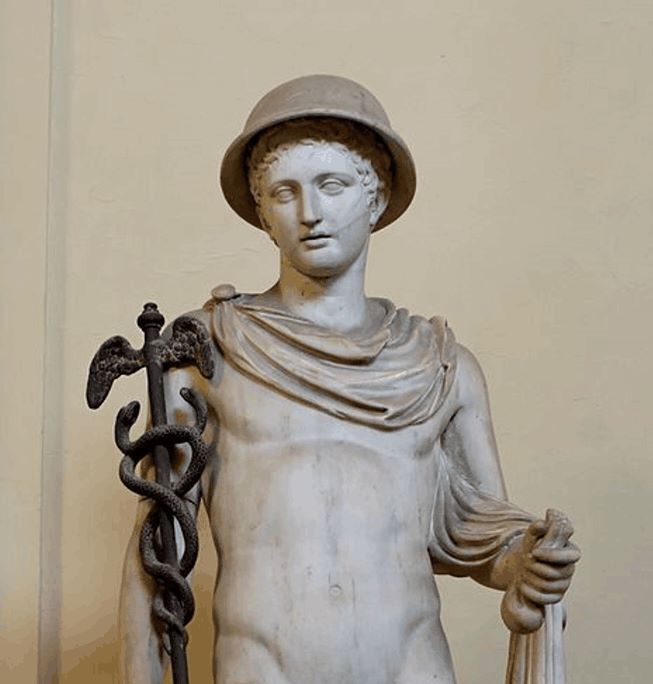 Statue of Hermes wearing the petasus (round hat) There are literally hundreds of god and goddesses attributed to everything from the moon to beauty to war to fools. You could think of them as "household gods". You didn't just pray to one; you prayed to (or cursed) whichever deity suited the occasion. So, as a language learner, whom do you pray to before that big test on Chinese? Who do you curse when you mix your German verb tenses? Who do you thank when you manage to correctly ask (and understand the reply for) "सौ्चालय् कहा् है?" when you need to relieve yourself while exploring the streets of India? Now, I know that you probably don't have any special god or goddess for this purpose and would simply invoke the deity of your religion. You might not even have a religion, making the entire question useless. Why even drag religion into languages? Well, part of the reason we learn languages is to understand other cultures, and religion is often a big part of a culture, even if we ourselves are not religious. I do not personally get involved with religious beliefs, but I recognize that praying to a higher being is an expression of seeking strength and hope, while cursing a deity is a way to vent our anger, frustration and hurt. Language is a central concept in today’s biggest religions, invoking the "Word of God". The ancient prophets are those who were spoken to by God and able to transcribe the message for the masses. From there, the founders of modern religions may have bemoaned the multiplicity of languages in the world or have conferred God potency transcending languages – He may speak to anyone. From that perspective, the Bibles were translated into many languages early on because it was part of the Christians to spread the "Word of God" and the "Good News". 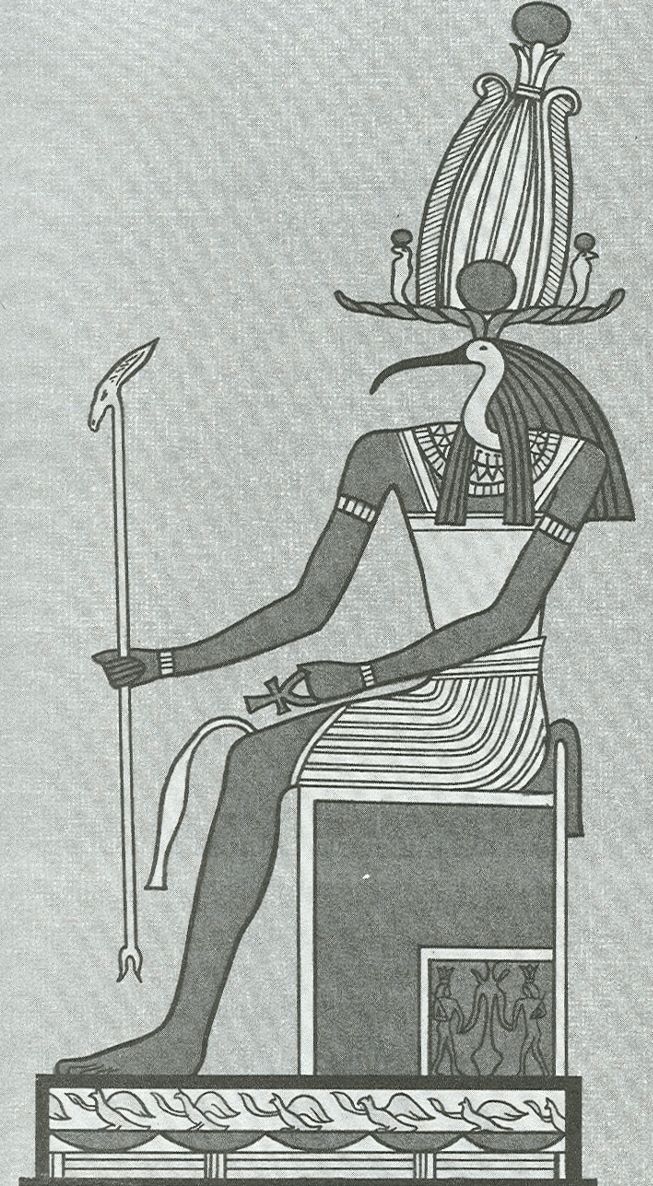 Depiction of Thoth on his throne Also, talking about deities in a cultural aspect can be educational as well as fun. So in order to answer this question, I have done some research into a few religions. Now, most modern religions (Christianity, Judaism, Islam, Flying Spaghetti Monster) only have a single deity, so there isn't really anything to look at there; the respective god of each is omnipotent, ruling everything. It is the older ones we need to look at for more diversity. Examining the Gods Probably the most famous of pantheons is that of the Romans and Greeks, which often coincide in stories but differ only in the names. (Extra credit here: Which single deity has the same name in both Roman and Greek mythology?). If you wish to look to a Greek god for your divine language inspiration, Hermes would be your guy. Called Mercury by the Romans, Hermes is the "god of language, learning & crafty wiles". This aspect of him is related to Mnemosyne, the goddess of memory. Hermes is said to have been the inventor of writing, and he is also the one who taught mankind their many tongues. In the latter, he would be the cause of the "babelisation" of language, which I will talk more about later. Some also refer to him as the "god of translators and interpreters", but that is more due to personal interpretations of his classification. 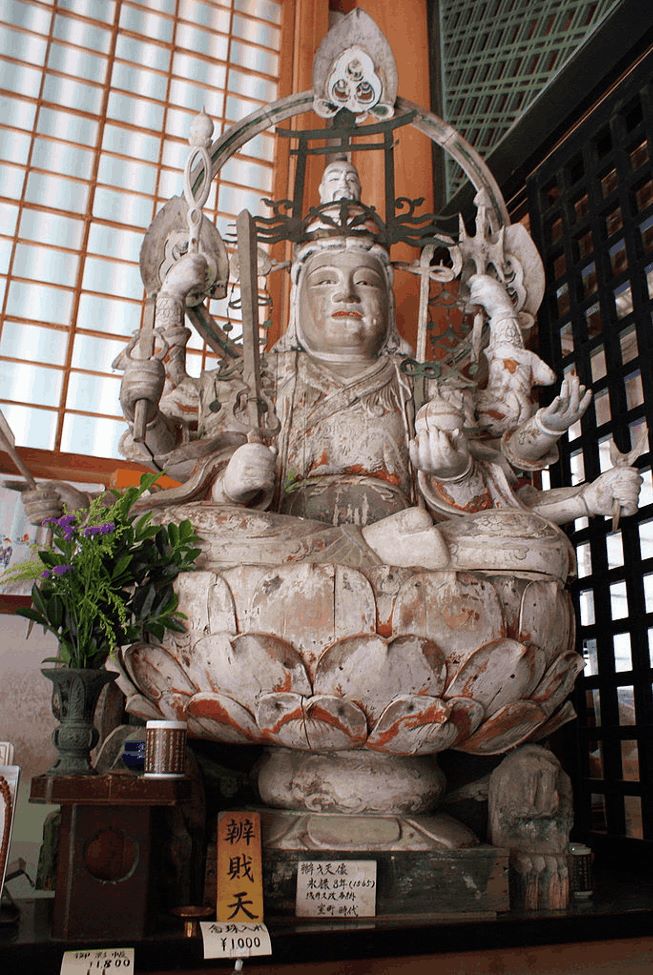 Statue of Benzaiten with a Torii on her head From Gaius Julius Hyginus, Fabulae 143 (Roman mythographer, circa 2 AD): "Men for many centuries before lived without town or laws, speaking one tongue under the rule of Jove [Zeus]. But after Mercurius [Hermes] had explained [or created] the languages of men, then discord arose among mortals, which was not pleasing to Jove [Zeus]." Many of the gods and goddesses also multitask, and Hermes is no exception. He is also the god of (deep breath here) animal husbandry, heralds, birds of omen, thieves & trickery, trade & merchants, roads, travellers & hospitality, feasts & banquets, sleep & dreams of omen, rustic divination, contests, gymnasiums & the games, astronomy & the calendar, rustic music, poetry & animal fables. Hermes is also the protector of the home and guide of the dead. And you thought you had too many things to do! In Norse mythology, there are three brothers, Óðinn, Vili, and Vé, who are the son of Borr. While Óðinn (or Odin) is famous as being the father of the gods, Vé is the one credited with giving mankind the power of speech, hearing, and sight. Sadly, little else is known about him. Now, if Egyptian mythology is your thing, then you need to look for Djhuty, or Thoth. He is the god of the moon, of reckoning, of learning, and of writing. For our purposes, he is credited as being the inventor of writing and the creator of languages. His job is to be the scribe, interpreter, and adviser of the gods. He became universally worshipped by ancient Egyptian scribes, with many of them having paintings or pictures of Thoth in their places of work. Thoth is also believed to have been "self-begotten", meaning he created himself. Other myths suggest that Thoth actually created himself through the power of language. He is represented as having the head and neck of an ibis, which is a large bird with a very long beak. Don't you think that would make it rather hard to speak? 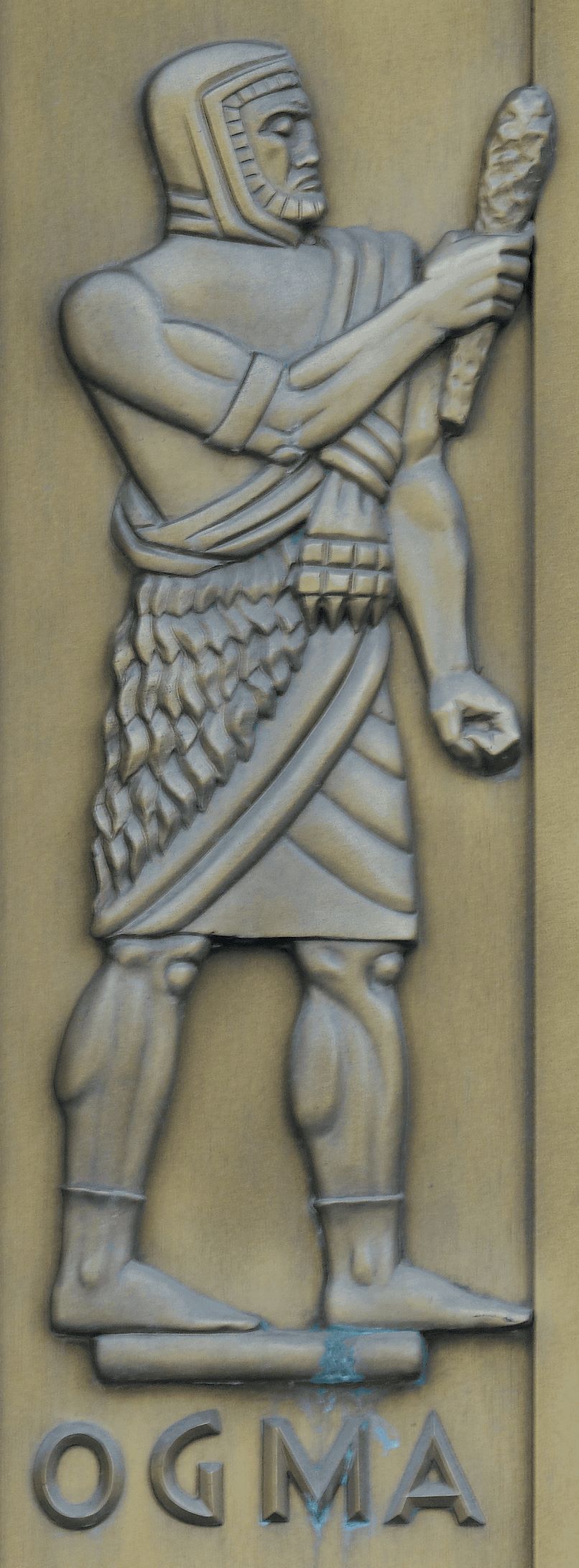 Ogma, sculpted bronze figure by Lee Lawrie On the Hindu side, we have Vāc, or in this setting, Sarasvati, who is essentially in charge of protection, purification, offerings, and communication. She is closely associated with the spoken word and fresh flowers, so I guess she would be considered the Hindu god of language. She also uses her powers to banish any lingering doubts or negativity, which can really help when you are learning a language. The name "Vāc" is from the Sanskrit for "speech", and she is credited with the creation of Sanskrit. Vāc was the first person to speak the first word, and it is she who gave the first speech to her people. As we have Roman and Greek gods and goddess that are essentially the same between religions, through a process called syncretism, similar relations are drawn between Asian deities. The equivalence of Sarasvati in the Japanese culture is Benzaiten. Also known as Benten, she is the goddess of everything that flows, which includes water, music, words, and speech. She is the third daughter of the dragon-king of Munetsuchi and protects and bestows good fortune on the Japanese people. Now, if you haven't heard of these deities before, don't be disappointed. I am guessing most people don't know of them or their connection to languages. However, if you have studied scripts and writing systems, then I am sure you have heard of this next one. Ogma is the Celtic god of education, genius, eloquence, magic, and language. Why I say you should recognize the name is because he is credited with creating the runic script called Ogham. It was used primarily to write the early Irish language, and was normally seen carved on stone and wood. Since this is an alphabet that we can actually identify, I relate much more closely to Ogma than the others. Saints 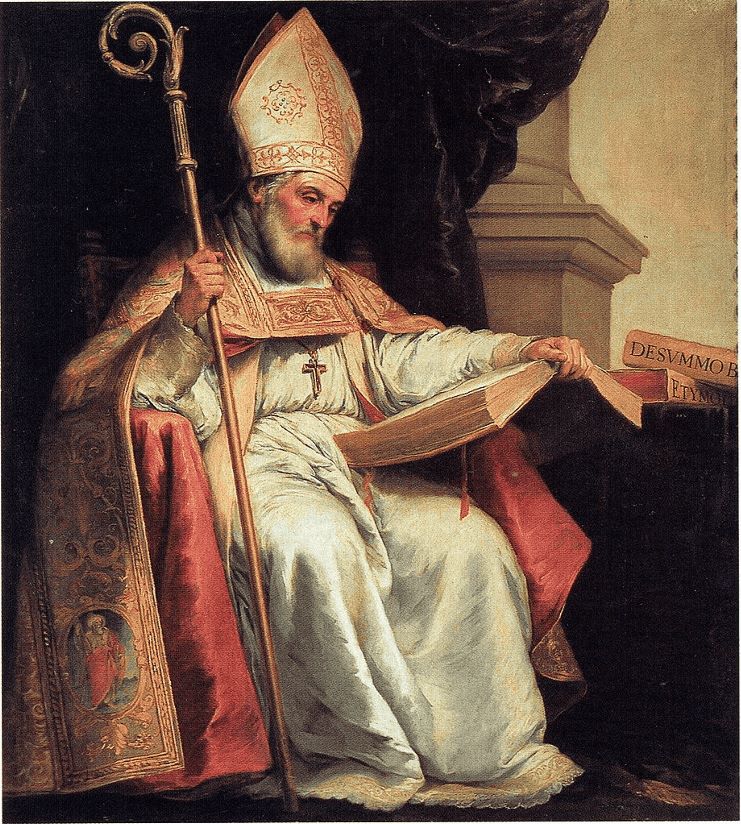 Saint Isidor of Sevilla When it comes to Catholicism, there are various saints associated with language activity. While they are not considered gods in the "all powerful" sense, they are often invoked like gods, and are believed to be watching over us and even aiding us. They are recognized by the word "Saint" (often abbreviated to "St." in writing) before their names. Translators would probably call upon St. Jerome while working with their languages. His best known works were a translation of most of the Bible into Latin (now known as the Vulgate) and his commentaries on the Gospels. In Spain, St. Isidore of Seville is the patron saint for Spanish philologists (those who study literary texts and written records, establishing their authenticity, their original form, and determining their meaning). He was the first Christian writer to attempt to compile a volume of universal knowledge with his publishing of Etymologiae. Etymologiae was the most used textbook throughout the middle ages, probably comparable to our modern day Wikipedia. For this, St. Isidore is so revered that in 2000, "The Order of St. Isidore of Seville" was formed for the main intent of honouring Saint Isidore as patron saint of the Internet. Finally, we must not forget Saints Cyril and Methodius, who were brothers. They were Byzantine Christian theologians who, along with their students, created the Glagolitic and Cyrillic alphabets, the oldest known Slavic alphabets, in order to translate the Bible and other texts into the Slavic languages. |
| Language Creation and Deities | ||||
| Writer: | Erik Zidowecki | |||
| Images: | ||||
| ||||
All images are Copyright - CC BY-SA (Creative Commons Share Alike) by their respective owners, except for Petey, which is Public Domain (PD) or unless otherwise noted.
comments powered by Disqus









